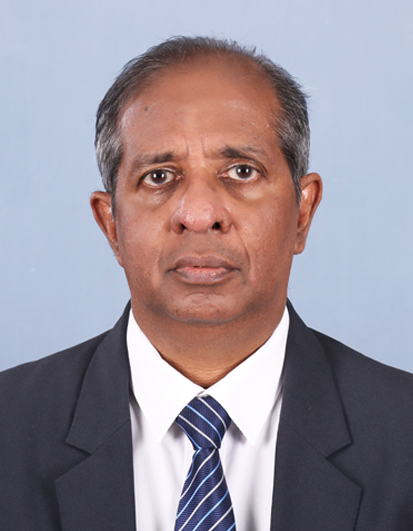Dr Sudath Samaraweera
 Dr Sudath Samaraweera is a public health specialist and senior medical administrator with more than thirty years of experience in Sri Lanka’s health sector. He completed his medical degree at the Faculty of Medicine, University of Colombo, in 1986. Dr Samaraweera obtained his MSc and MD in Community Medicine from the Postgraduate Institute of Medicine, University of Colombo in 1997 and 2003 respectively. He received board certification as a Specialist in Community Medicine in 2004. He earned his PhD in Health Services and Population Research from King’s College London in 2011.
Dr Sudath Samaraweera is a public health specialist and senior medical administrator with more than thirty years of experience in Sri Lanka’s health sector. He completed his medical degree at the Faculty of Medicine, University of Colombo, in 1986. Dr Samaraweera obtained his MSc and MD in Community Medicine from the Postgraduate Institute of Medicine, University of Colombo in 1997 and 2003 respectively. He received board certification as a Specialist in Community Medicine in 2004. He earned his PhD in Health Services and Population Research from King’s College London in 2011.
Throughout his career, Dr Samaraweera has held various roles within the Ministry of Health. He began his specialist career at the Epidemiology Unit and then at the National Programme for Tuberculosis Control & Chest Diseases, where he remained until 2010. He was later appointed as the Deputy Director of the National Programme for Tuberculosis Control & Chest Diseases. In 2015, he assumed duties as the Director of the National Cancer Control Programme. In 2019, he was appointed as Chief Epidemiologist of the Epidemiology Unit of the Ministry of Health from 2021 to 2025, he served as the Director of the National Dengue Control Unit at the Ministry of Health. Dr Samaraweera also has contributed as a consultant in arboviral diseases at the World Health Organization South East Asia Regional Office, New Delhi, India from February to November in 2023.
In addition, Dr Samaraweera has also provided leadership in several other national-level leadership positions within the Ministry of Health and include Director of Global Fund to Fight AIDS, Tuberculosis and Malaria (GFATM) Project (2012–2016), Director of Anti-Malaria Campaign (2013–2014), Deputy Director General of Education, Training & Research (2018–2020).
Dr Samaraweera’s academic achievements, combined with his extensive administrative experience and contributions to disease control, health system strengthening and national policy implementation, position him as a dynamic leader at the National Science Foundation. His stewardship reflects a commitment to fostering scientific research, innovation and evidence-based decision-making for national development.
